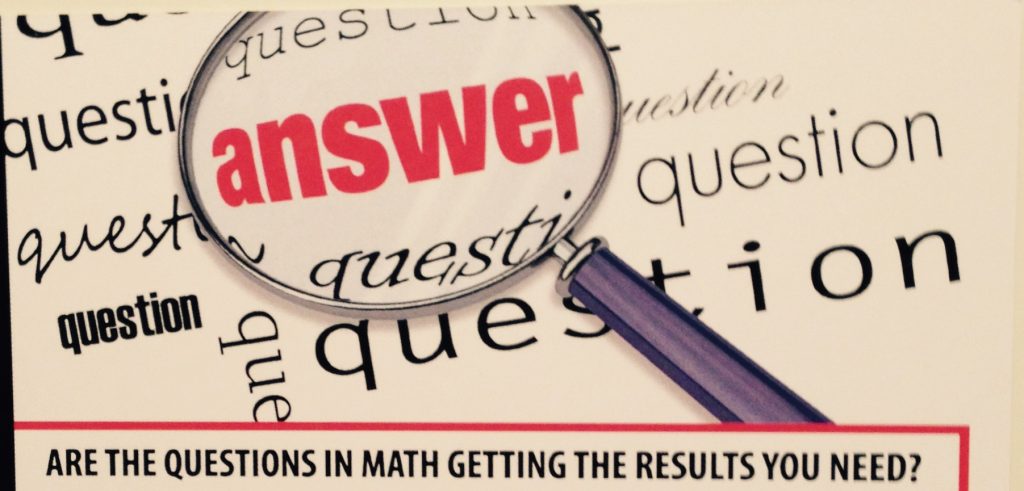 Questioning is the quintessential tool teachers use in their facilitation of lessons. Often the process of asking questions precedes the how and why. The role of questioning for instruction is a different concept from the role of questioning in inquiry-based learning. Unlike questioning to guide the process of inquiry, questioning for instruction addresses asking questions to get at higher level thinking.
Questioning is the quintessential tool teachers use in their facilitation of lessons. Often the process of asking questions precedes the how and why. The role of questioning for instruction is a different concept from the role of questioning in inquiry-based learning. Unlike questioning to guide the process of inquiry, questioning for instruction addresses asking questions to get at higher level thinking.
Good questions are the principal element in the development of critical thinking skills. They are open-ended, non-judgmental, meaningful, and purposeful and provoke new ideas. Questions encourage collaboration amongst students and teachers and support the learning process.
What do teachers and parents need to know to develop higher-level thinking skills? How does one know the ‘right’ questions to ask in order to get children to think at a problem solving level and to get the ‘right’ answer? A look at Bloom’s Taxonomy will begin the process of questioning. By analyzing the taxonomy, teachers will make better sense of the learning and improve their own questioning skills.
Thinking is not driven by answers. It is driven by questions. The questioning process defines the task, expresses an idea, and describes issues. In simply providing an answer to students, we command a halt to the thinking process. If an answer brings forth another question, then the thought will continue. Thought provoking questions force students to deal with complexity. For a full review of this study refer to http://stg.adamseducate.com/my-work-in-research/.
The traditional classroom reflects the teacher as the ‘sage on stage’ asking the questions and owning the wealth of information – never transferring the ownership to the student. Questions are centered on a student’s comprehension level and produce a passive classroom interaction that is one-to-one (teacher to student).
When younger children ask a question, they are taking an active role in their own learning. They want to know how the world works. Through their questions they begin to develop critical thinking skills and communication skills. It is important to encourage this questioning to nurture their curiosity and continue to encourage questions throughout their years of schooling.
Today’s students need to think through tasks by changing closed questions to open-ended – that is, a question that is structured in such a way that it invites a variety of responses. Open questions provide for:
• Student participation
• Differentiation
• Rich content conversation
• Conceptual understanding
Open ended questions should be meaningful, focused on the goal, appropriately vague, and discussed further. A teacher’s role is to become a facilitator that guides the thinking, questioning, and not providing examples that lead toward a specific direction.
Questioning is a skill that requires the practice of students, teachers and parents. Questioning requires modeling and reflective thought. When questions are asked, it is important not to judge a response, not to answer the question, but to keep students on task. A good questioning classroom environment will make a significant contribution to the learning of each student.
For information on a questioning course from the staff at Adams Educate, click on the following link: http://stg.adamseducate.com/productive-questioning-course/



